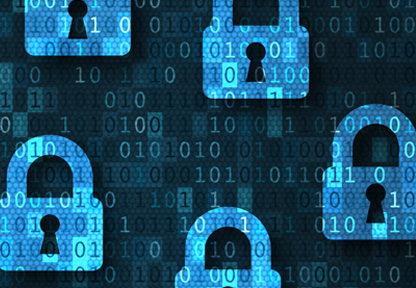Blockchain security, the critical technology between new digital currencies like bitcoin, is becoming more significant. As an IT security leader, you may be asked about blockchain security and what it means for the future of technology. Use this article as a resource to understand the main ideas related to blockchain.
Why Does Blockchain Technology Matter To IT Security?
Blockchain technology represents a new way to use cryptography to enable transactions. Rather than relying on central administration in a company or a country, blockchain users trust in the system. As a result, blockchain security is attractive to users who value privacy and autonomy. For companies frustrated at the challenge of protecting sensitive customer data, blockchain IT security may be appealing.
Finally, it is also essential for IT security leaders to be fluent with new and emerging technologies. Without the ability to speak to your peers and business leaders about blockchain, you may lose credibility in the company.
Blockchain Security: The Three Fundamental Concepts You Need To Know
There are three core ideas common to most blockchain technologies worth understanding.
1. Blockchain encryption: Hashing
Each user on a blockchain system has a unique key commonly called a hash. This hash is generated through a mathematical process, which makes it difficult to duplicate. It can be thought of as roughly similar to a password or a key to a door. The end-user needs to keep their key secure. If it falls into the wrong hands, the data protected by the system may be compromised.
2. Blockchain mining
Verifying new transactions on a blockchain process tends to be decentralized. That means multiple computers are involved in processing new blocks of transactions and confirming each one’s validity. In the context of blockchain currencies like Bitcoin, miners receive a reward in the form of cryptocurrency. Any blockchain system needs to have some mechanism to incentivize a sufficient number of computers to verify transactions.
3. Blockchain immutability
There is always a question about whether data and records have been protected from unauthorized changes in traditional IT systems. Theoretically, blockchain systems are designed to avoid such problems. Once a transaction is confirmed in a blockchain system, it should be impossible to delete or alter that transaction record.
The immutability factor could be valuable in terms of identity and access management. Such a system may help in enabling oversight of changes to user accounts and privileges.
Assessing Blockchain IT Security For Your Company
Now that you understand the key ideas that underpin blockchain IT security, the next step is to evaluate this technology. Consider some of the most common problems in IT security and how they may be solved to explore this issue.
1. Integrity of company records
Blockchain systems generally rely on immutability. As a result, blockchain technology might be helpful as a way to protect your company’s records from tampering. At this time, using blockchain for critical company IT security systems is not available.
Therefore, you need other ways to gain assurance over the integrity of company records. You might start with a process solution. Make it a matter of policy that only some users can change records (e.g., only managers can approve new user accounts) while other users can request access. Alternatively, you might decide to train your staff on the fundamentals of records management and data integrity. Such training can be further enhanced by using the segregation of duties principle to ensure that different people review critical decisions and transactions.
2. Distributed responsibility for IT security
Blockchain technology is designed to distribute security. Instead of relying on a single server to manage security, security is contained throughout the chain. As a consequence, it may be more challenging to attack blockchain systems.
That said, there have been successful hacker attacks against blockchain systems. Gate.io, a digital currency exchange, admitted it lost over $200,000 in 2019. Other attacks have been reported against other blockchain systems.
In the event of a hacking event or IT security event, a decentralized IT security approach has problems. It is more challenging to assemble the data, perform a root cause analysis, and improve security afterward. Therefore, your organization may decide that blockchain IT security’s decentralized nature is not a good fit right now.
Blockchain IT Security Alternatives You Can Use Right Now
Today, the security benefits of blockchain security for companies are limited. That may change at some point in the future. For now, it is helpful to review a few practical ideas to improve IT security performance this year rather than the next decade.
Start by increasing your process discipline for identity and access management. Specifically, we recommend that you put a program in place to reduce inactive user risk. Left unmanaged, old user accounts can significantly increase the likelihood of an IT security event.
After you have inactive user risk under control, look for ways to tighten your IT compliance program. At its best, IT compliance functions as a second line of defense to catch gaps in your security arrangements. There’s just one problem. If you have a small IT compliance team, it is tough for them to review every system and account. That’s why you need to equip your IT compliance professionals with tools like Compliance Auditor. Using Avatier’s Compliance Auditor, you can make notes throughout your audits and save time by having all the essential records in one place.
Finally, it is helpful to create some spare capacity in your IT security team. With some excess capacity, your IT security will have the chance to evaluate new technologies as blockchain and artificial intelligence continue to evolve. Creating more free time doesn’t require magic or hiring more staff, either. Instead, look for IT security automation tools like Apollo. With Apollo, you will have a dedicated security chatbot available to reset passwords 24/7. Imagine what your team could accomplish if they could free up a few hours of extra work time each week. Keeping some excess capacity in your workload will help reduce IT security employee burnout as well.




